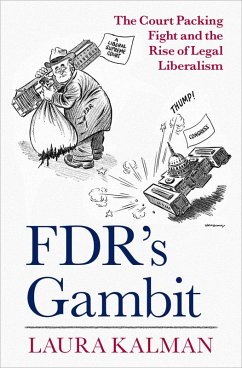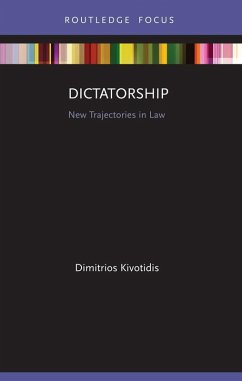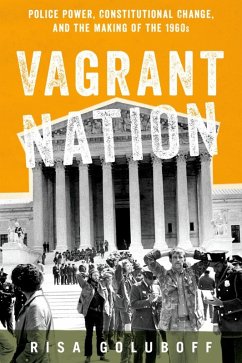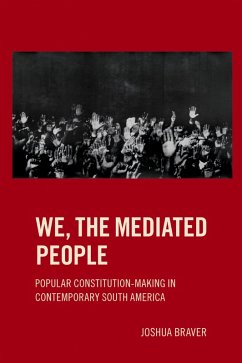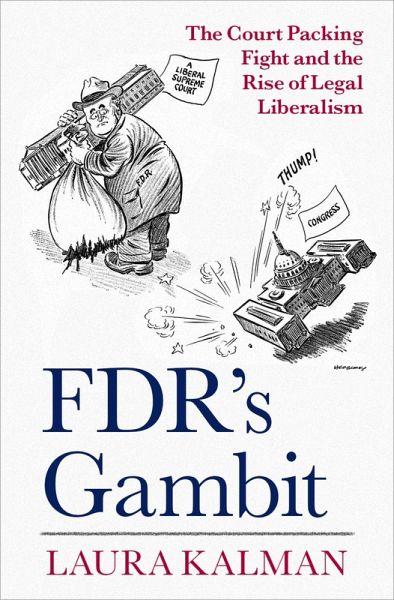
FDR's Gambit (eBook, ePUB)
The Court Packing Fight and the Rise of Legal Liberalism
Versandkostenfrei!
Sofort per Download lieferbar
11,95 €
inkl. MwSt.
Weitere Ausgaben:

PAYBACK Punkte
6 °P sammeln!
A comprehensive, engaging, and revisionist account of the Court fight that ties it to contemporary policy debates. In the last past few years, liberals concerned about the prospect of long-term conservative dominance of the federal courts have revived an idea that famously crashed and burned in the 1930s: court packing. Not surprisingly, today's court packing advocates have run into a wall of opposition, with most citing the 1930s episode as one FDR's greatest failures. In early 1937, Roosevelt-fresh off a landslide victory-stunned the country when he proposed a plan to expand the size of the ...
A comprehensive, engaging, and revisionist account of the Court fight that ties it to contemporary policy debates. In the last past few years, liberals concerned about the prospect of long-term conservative dominance of the federal courts have revived an idea that famously crashed and burned in the 1930s: court packing. Not surprisingly, today's court packing advocates have run into a wall of opposition, with most citing the 1930s episode as one FDR's greatest failures. In early 1937, Roosevelt-fresh off a landslide victory-stunned the country when he proposed a plan to expand the size of the court by up to six justices. Today, that scheme is generally seen as an act of hubris-an instance where FDR failed to read Congress and the public properly. In FDR's Gambit, the eminent legal historian Laura Kalman challenges the conventional wisdom by telling the story as it unfolded, without the distortions of hindsight. Indeed, while scholars have portrayed the Court Bill as the ill-fated brainchild of a hubristic President made overbold by victory, Kalman argues to the contrary that acumen, not arrogance, accounted for Roosevelt's actions. Far from erring tragically from the beginning, FDR came very close to getting additional justices, and the Court itself changed course. As Kalman shows, the episode suggests that proposing a change in the Court might give the justices reason to consider whether their present course is endangering the institution and its vital role in a liberal democracy. Based on extensive archival research, FDR's Gambit offers a novel perspective on the long-term effects of court packing's failure, as a legacy that remains with us today. Whether or not it is the right remedy for today's troubles, Kalman argues that court packing does not deserve to be recalled as one fated for failure in 1937.
Dieser Download kann aus rechtlichen Gründen nur mit Rechnungsadresse in A, B, BG, CY, CZ, D, DK, EW, E, FIN, F, GR, HR, H, IRL, I, LT, L, LR, M, NL, PL, P, R, S, SLO, SK ausgeliefert werden.




